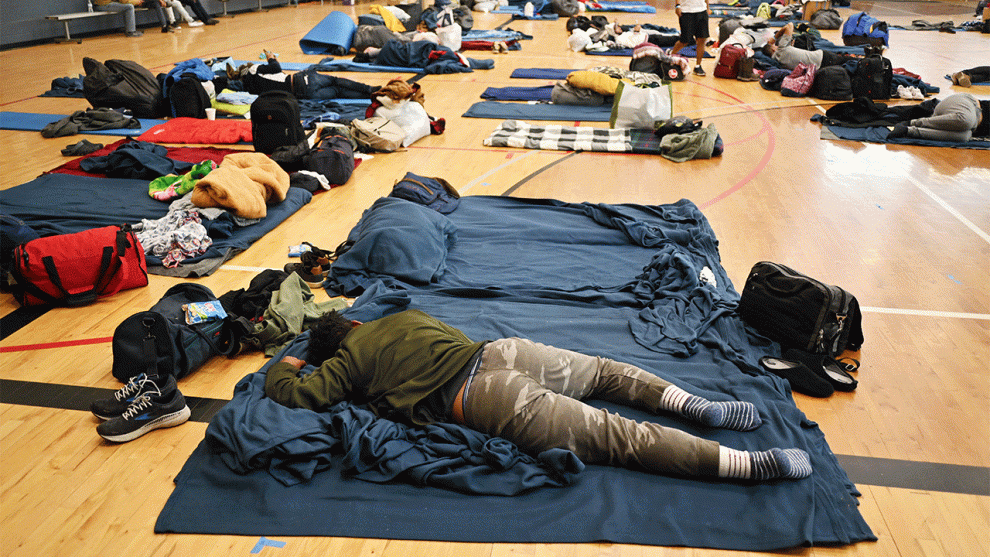Denver officials say that the city expects to spend up to $20 million on housing and caring for migrants within a six-month period, with costs estimated to be up to $1,000 per migrant per week.
In a briefing at a city council budget meeting on Monday, officials outlined the ongoing costs of the city-wide crisis that began in December when it saw a surge of migrants coming in via the southern border.
So far, the city has aided over 6,000 migrants, which marks just a fraction of the over 150,000 typically encountered across the overwhelmed southern border each month. The surge led Mayor Michael Hancock to declare a state of emergency. Numbers coming in have decreased sharply from the highs of December, but it has taken a deep financial toll on the city.
LIBERAL CITY’S ‘DISGRACEFUL’ MOVE BEFORE BASEBALL’S OPENING DAY HAS ACTIVISTS FURIOUS
Officials said the city is spending approximately $800-$1,000 per migrant per week. As a result, from January to June it expects to spend between $17 and $20 million on shelter, meals, hotels, transportation, staffing, supplies and other services.
How much it will cost from July to the end of the year is still to be determined, they said.
DENVER PLACES TWO-WEEK LIMIT ON MIGRANT SHELTER, AS COLO. GOV STOPS BUSING MIGRANTS TO MAJOR CITIES
Officials said that the city can currently shelter approximately 1,200 migrants at any one time, and that it is expected to expand that capacity later this month. Denver put certain limits on migrant shelter earlier this year, including a 30-day limit for how long migrants can stay in a shelter, as well as bars on returns and migrants engaging in “illegal activity.”
The state was embroiled in controversy in January over the migrant surge when it began busing migrants to New York City and Chicago. Democratic Gov. Jared Polis had defended the busing, saying that the majority of arriving migrants did not have the state as their final destination.
As a result, the state said it was working with non-profits to “provide intake, processing, and transportation coordination to help migrants safely reach their desired final destination.”
“People fleeing violence and oppression in search of a better life for themselves and their families deserve our respect not political games and we are grateful we have been able to assist migrants to reach their final destination,” Polis said in a statement in January.
The move sparked a backlash from Polis’ fellow Democrats in those cities with NYC Mayor Eric Adams and Chicago Mayor Lori Lightfoot telling Polis that the buses “do not live up to the values of a proclaimed welcoming state and should stop immediately.” Those cities had been the target for a number of buses from Texas, where Gov. Greg Abbott had ordered buses be sent to “sanctuary cities” to help ease the pressure Texas was facing from the migrant crisis at the southern border.
COLORADO CANCELS PLANS TO SEND MIGRANTS TO NYC, CHICAGO AMID OUTCRY FROM DEMOCRATIC MAYORS
Denver most recently face another controversy when it drew criticism from homeless advocates for removing encampments near Coors Field ahead of the Colorado Rockies’ opening day baseball game.
Meanwhile, at the border the Title 42 expulsion authority is due to end on May 11 along with the end of the COVID-19 public health emergency. That has led to concerns that a new uptick in migration could follow behind it, although the Department of Homeland Security says that it has a plan in place to deal with any increase in crossings.
























